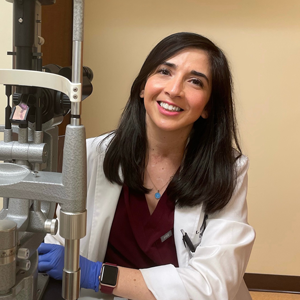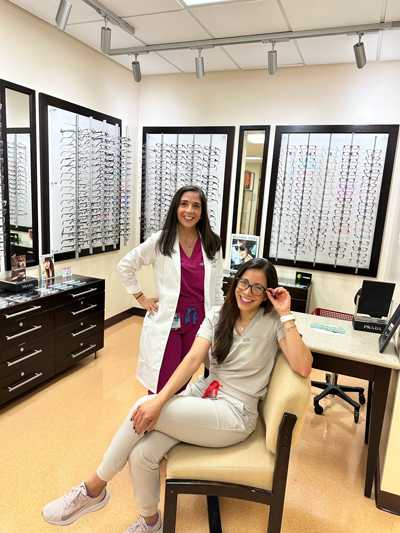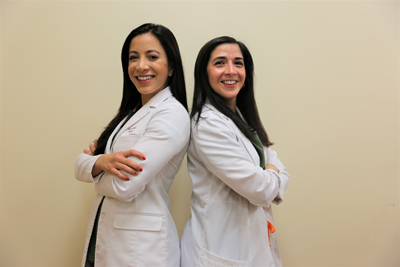

MAKING CARE ACCESSIBLE
Dr. Setto began considering other options when she found an opening for a job much closer to home with Clinicas del Camino Real, a federally qualified health center (FQHC) network with locations across nine counties in California. The position would give her a chance to provide care for the underserved population in the area, a quite drastic change from working with an affluent patient base near Beverly Hills.
She made her move in July 2019, and the switch has proven to be the right match. “I spend more time with each patient, and they are so grateful for any help you can offer them,” she says. “I really appreciate how thankful patients are and being able to help them without the selling aspect of it. I never have to sell anything, and, honestly, that makes me feel better.”


Dr. Setto has enjoyed seeing patients of all ages since joining the clinic—as young as 11 days old to 102 years old. Dr. Setto speaks Spanish, Arabic and Turkish, and sees a large Middle Eastern population. Her weekly routine is seeing patients Monday through Friday, 9-5, with one late day per week, and she sees a mix of walk-in patients from the urgent care at the clinic as well as scheduled patients who have been referred to her or have the medical insurance that are in network with the clinic. “We don’t do weekends here, and we are never on-call, and I think that’s a great balance to have a break on the weekends,” Dr. Setto says.
The clinic offers a sliding fee for patients based on income, whether they have none, just a little or someone who is supporting them. Patients provide proof through a pay stub, tax return or a letter from a family member confirming they have on income, and then it is determined how much they will pay. The discounted price covers the exam and glasses or contact lens fitting. The services are advertised at local health fairs, and Dr. Setto has also presented on the topic of keeping your eyes healthy on a local Spanish-speaking radio show.
PART OF THE TEAM
Dr. Setto has a large network of other health care professionals within the clinic network to tap into for advice, as well as refer to extend patients’ quality of care.
She’s one of 12 optometrists on the team, and the group also has a medical doctor, pediatricians dentist, chiropractor, a pharmacy and more. “If I have a question a medical question about my patients, I can run over to the medical side or call my colleague there. It comes in handy quite a bit,” Dr. Setto says. She and the pediatrician at her office, Parastoo Modir, DO, have become close friends and will advise each other about mutual patients. Dr. Setto’s previous experience has dubbed her a dry eye guru in the clinic, and she often receives referrals from other doctors. Other ODs on the team specialize in glaucoma, RGPs and other areas, and they receive those referrals. “We all have things we enjoy,” she says. Dr. Setto also continues to co-manage with refractive surgeons.


Dr. Setto says there have been so many other benefits to making her job move to a FQHC, she says, from guaranteed annual raises based on performance and volume, but also for participating in screenings and community outreach. There are great benefits, a good amount of personal/sick time off and retirement planning. She also has a chance of government student loan repayment if she works with the clinic for 10 years.
MAKING AN IMPACT
The past four years have been full of memorable experiences in the exam room, confirming that Dr. Setto made the right choice with her career move. She recalls a few interactions that stand out.
First, a patient from Turkey was at the clinic’s dentist, and she was having trouble filling out the forms. The dentist knew that Dr. Setto speaks Turkish and asked if she could translate. “When I started speaking Turkish, she was so shocked,” Dr. Setto says. She later saw the patient for an eye exam in her own office, which also stood out since she was her first Turkish patient in the clinic.
Dr. Setto has always been a big advocate for dilating, and even more now after her mother passed away after a choroidal tumor metastasized. She personally has diagnosed a brain tumor in the clinic, as well, after a patient came in experiencing a dramatic change in her vision. “She was very appreciative of that.”
In 2020, Dr. Setto shared her experience with a rare autoimmune disease and liver transplant with Women In Optometry. Read that story here.



